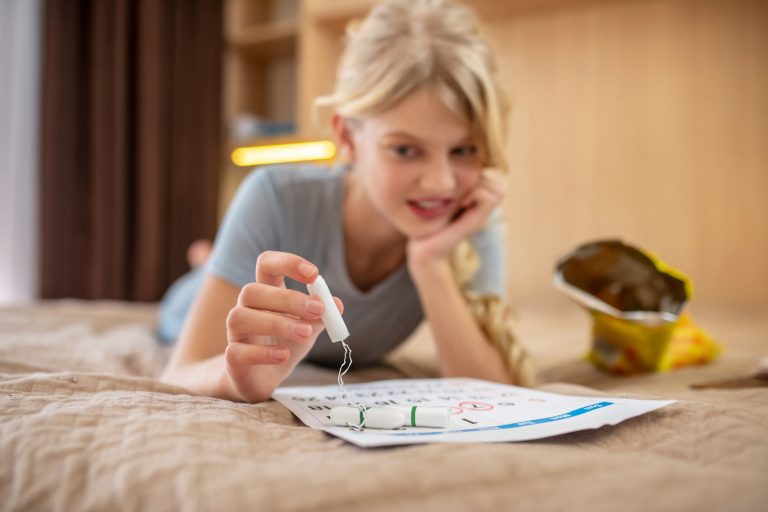You don’t have to call yourself a hard-core feminist to believe that periods shouldn’t be a taboo subject, and that we need to eliminate the shame and embarrassment attached to our cycles. The best way of ending this stigma, is by talking to our kids. Our boys and our girls. Our boys need to understand menstrual cycles from a young age so that they can have an understanding, build empathy and awareness. This is crucial to eliminating shame in young girls feel about their bodies. By now, we all understand that it’s important to talk to our kids, but some of us still need tips on how to talk to our kids about periods.
The conversation starts at home, but for many women it’s a difficult one to broach. This comes down to how we were taught about our periods. It can bring up awkward feelings and memories and emotions that come from the way the message was given to your as a little girl. In previous generations the topic wasn’t raised until a girl gets her period, at which time her mother would quickly show her how to use a pad, and that’s the last time it’s discussed. No talk about how it will make you feel, how long it will last, what product options are or even how long it will last. I’ve heard countless stories of girls who were never told it would be a monthly occurrence- and they were shocked (and disappointed) when it returned the following month.
It can hard work to break this negative cycle, but we must make changes for our own kids. And for the most part, many women are starting to talk openly about it. Even television advertisements have finally stopped using blue washer fluid to demonstrate blood. So regardless of how you were raised, or how deep the shame goes, it’s important that we talk openly about menstruation with our kids.
Here are some tips to opening up the conversation and keeping it open:
Start early.
Keeping it age appropriate, be honest and open. If your toddler asks why your have a string, or sees blood in the toilet. Answer honestly, “that’s mommy’s period” simple and matter of fact. They may a have a follow up question, but often toddlers feel happy enough with the answer provided.
Normalize it.
Don’t feel the need to keep your hygiene products hidden away in the back of the cupboard, or only buying them when you’re alone. Normalizing will eliminate any stigma.
Be honest.
We must be positive about our periods to be able to not be embarrassed by our bodies. We have to make sure that we’re proud of our bodies and what they can accomplish. Having said that, it’s not always fun, and we must be honest. Share when you’re not feeling your best, when your uncomfortable or moody. Honesty, about it is crucial to destigmatizing without making girls feel as though it will always be a beautiful thing.
Demonstrate.
Show your kids that when you’re not feeling top-notch that you take time to care for your body. Demonstrate how exercise can help, or some alone time watching a movie, or a healthy meal, or mediate or take a walk. Demonstrate healthy ways you care for your body to make sure you’re feeling your best physically and mentally.
Tell your story.
Share the story of when you got your first period. You can either save this for when your daughter gets hers or share another time. But it’s important for her to hear that you’ve been though it too.
Talk about choices.
Show your daughter the different options. Share with her some info on pads vs tampons vs cup. Share the pros and cons, talk openly about how they’ll effect the environment, or the convenience of each one. Let her learn to make informed decisions about her body, her choices, and the options available to her. Shop for some period-proof underwear together.
Keep the narrative going
Overall, talking openly to our kids about their periods doesn’t need to be an event, where we sit and have the talk, it’s about always being open approachable about the topic. Talking about it in daily life, normalizing it and making it an ongoing narrative. The more open we can be, the better we’ll be at eliminating shame and embarrassment for the next generation, and allowing our girls to have a healthy relationship with their bodies.
Looking for more?
Here are some additional helpful tips, especially for dads to help their daughters through puberty. And another great read about eliminating period shame.

